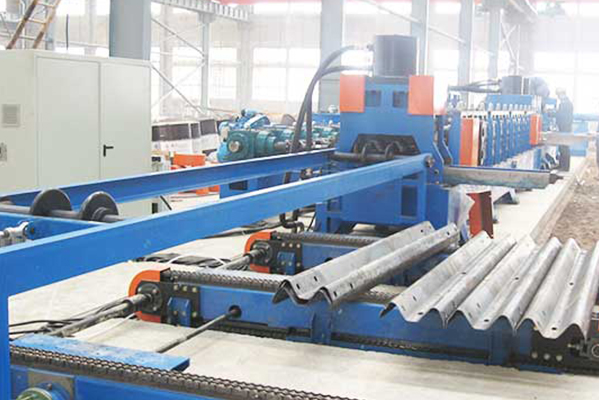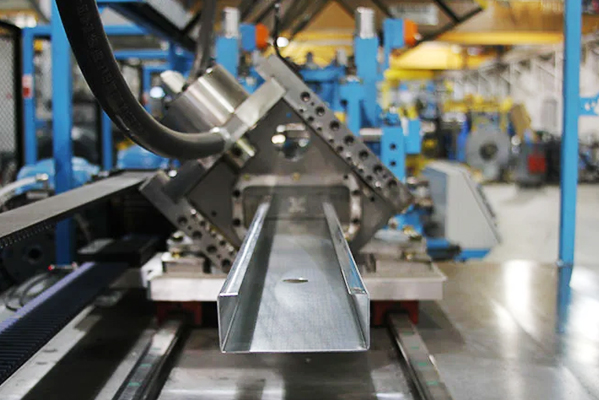Navigation Menu
Contact Us
- Email:
- info@wxavatar.com
- Address:
- Yurong Village, Yuqi Street, Huishan District, Wuxi, China.
Release Date:Nov 02, 2024 Visit:130 Source:Roll Forming Machine Factory
The automotive industry has always been at the forefront of technological innovation, constantly seeking ways to improve efficiency, reduce costs, and enhance product quality. One area where significant advancements have been made is in the roll forming machine process, which is essential for the production of various automotive components. This article explores some of the key advancements in roll forming machine processes that have had a profound impact on automotive manufacturing.

1. Enhanced Roll Tooling and Design Precision
In recent years, the design and manufacturing of roll tooling for automotive components have become more sophisticated. Manufacturers have adopted advanced materials and precision machining techniques to create rolls that can achieve extremely tight tolerances. This has enabled the production of automotive parts with unprecedented accuracy and consistency, which is crucial for ensuring the overall performance and safety of vehicles.
Moreover, the use of computer-aided design (CAD) software has revolutionized the roll tooling design process. Engineers can now simulate the roll forming process and predict potential issues before they arise, allowing for iterative refinements that optimize the roll design for specific automotive applications.
2. Advanced Control Systems for Precision Manufacturing
Advancements in control systems have also played a significant role in improving the precision of roll forming machines in automotive manufacturing. Modern control systems enable manufacturers to monitor and adjust various parameters in real-time, such as roll speed, feed rate, and material tension. This ensures that the roll forming process is performed consistently and accurately, even when faced with variations in material properties or operating conditions.
Furthermore, these control systems can provide valuable feedback for ongoing process improvements. By analyzing the data collected during the roll forming process, manufacturers can identify areas for optimization and make adjustments to improve the quality and efficiency of their operations.
3. Automation and Robotics for Increased Efficiency
Automation and robotics have become increasingly common in automotive manufacturing, including roll forming processes. Automated roll forming machines can operate continuously with minimal human intervention, reducing labor costs and improving productivity.
Robotic systems have also been integrated into roll forming processes to handle materials and finished parts more efficiently. These systems can move materials quickly and accurately between different stations, reducing the risk of damage and ensuring that the roll forming process runs smoothly.
4. Advanced Material Handling and Quality Control
The precision of automotive components produced by roll forming machines is heavily influenced by the material handling process. Manufacturers have invested in advanced material handling systems that can maintain precise control over the material throughout the roll forming process. This ensures that the material is fed into the rolls with consistent tension and alignment, which is crucial for producing high-quality parts.
In addition, advanced quality control systems have been implemented to ensure that the finished automotive components meet strict specifications. These systems use a combination of sensors, cameras, and software to inspect the parts for defects, measure dimensions, and verify compliance with design requirements.
5. Continuous Improvement and Innovation
The automotive industry is constantly evolving, and manufacturers must remain agile to stay ahead of the competition. This means continuously evaluating and improving roll forming machine processes to meet the changing needs of the market.
Manufacturers are constantly investing in research and development to explore new technologies and materials that can further enhance the precision and efficiency of roll forming machines. Collaboration with suppliers, academic institutions, and other industry stakeholders is also essential for driving innovation and staying at the forefront of technological advancements.

Conclusion
Advancements in roll forming machine processes have had a profound impact on automotive manufacturing. By adopting sophisticated roll tooling, advanced control systems, automation and robotics, and improved material handling and quality control, manufacturers have been able to produce automotive components with unprecedented precision and consistency. As the automotive industry continues to evolve, manufacturers must remain agile and open to new innovations to stay ahead of the curve and meet the changing needs of the market.